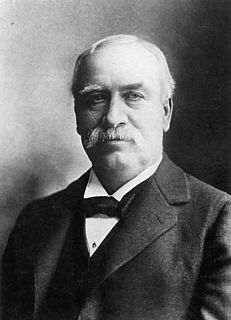A Quote by Mark Twain
A private should preserve a respectful attitude toward his superiors, and should seldom or never proceed so far as to offer suggestions to his general in the field. If the battle is not being conducted to suit him, it is better for him to resign. By the etiquette of war, it is permitted to none below the rank of newspaper correspondent to dictate to the general in the field.
Related Quotes
A man should not go where he cannot carry his whole sphere or society with him,Mnot bodily, the whole circle of his friends, but atmospherically. He should preserve in a new company the same attitude of mind and reality of relation, which his daily associates draw him to, else he is shorn of his best beams, and will be an orphan in the merriest club.
No ruler should put troops into the field merely to gratify his own spleen; no general should fight a battle simply out of pique. If it is to your advantage, make a forward move; if not, stay where you are. Anger may in time change to gladness; vexation may be succeeded by content. But a kingdom that has once been destroyed can never come again into being; nor can the dead ever be brought back to life.
Each pursues his private interest and only his private interest; and thereby serves the private interests of all, the general interest, without willing it or knowing it. The real point is not that each individual's pursuit of his private interest promotes the totality of private interests, the general interest. One could just as well deduce from this abstract phrase that each individual reciprocally blocks the assertion of the others' interests, so that, instead of a general affirmation, this war of all against all produces a general negation.
The trouble with him was that he was without imagination. He was quick and alert in the things of life, but only in the things, and not in the significances. Fifty degrees below zero meant eighty-odd degrees of frost. Such fact impressed him as being cold and uncomfortable, and that was all. It did not lead him to meditate upon his frailty as a creature of temperature, and upon man's frailty in general, able only to live within certain narrow limits of heat and cold; and from there on it did not lead him to the conjectural field of immortality and man's place in the universe.
It makes him contemptible to be considered fickle, frivolous, effeminate, mean-spirited, irresolute, from all of which a prince should guard himself as from a rock; and he should endeavour to show in his actions greatness, courage, gravity, and fortitude; and in his private dealings with his subjects let him show that his judgments are irrevocable, and maintain himself in such reputation that no one can hope either to deceive him or to get round him.
All warfare is based on deception. Therefore, when capable, feign incapacity; when active, inactivity. When near, make it appear that you are far away; when far away, that you are to lure him; feign disorder and strike him. When he concentrates, prepare against him; where he is strong, avoid him. Anger his general and confuse him. Pretend inferiority and encourage his arrogance.
In selling his scheme, Obama has been promoting the myth that our system is no better than those of other advanced nations. His recent statements have betrayed his openly contemptuous attitude toward American health care and out top-flight medical profession. His attitude is consistent with his revealed general attitude about America, which he denigrates every time he gets a chance, especially on foreign soil.
Some souls think that the Holy Spirit is very far away, far, far, up above. Actually he is, we might say, the divine Person who is most closely present to the creature. He accompanies him everywhere. He penetrates him with himself. He calls him, he protects him. He makes of him his living temple. He defends him. He helps him. He guards him from all his enemies. He is closer to him than his own soul. All the good a soul accomplishes, it carries out under his inspiration, in his light, by his grace and his help.
But, in conformity to His wisdom it was right that afterwards the Prophet should be sent back from the vision of pure Unity and that he should return . . . toward the separative vision. For, He created man and jinn only that they should worship Him and know Him - and, if they remained at the degree of pure Unity, there would be none to worship Him. In this separative vision, the Worshipped and the worshipper, the Lord and the servant, the Creator and the creature are again perceived.



































